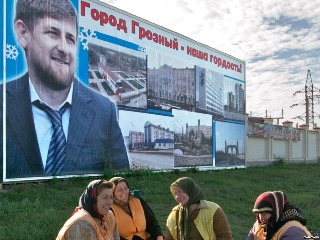Moscow's Appointment of Governors in the North Caucasus
By Valeriy Dzutsev (the 13/11/2013 issue of the CACI Analyst)
One by one, the North Caucasian republics are declining direct elections of governors, instead sticking to the appointment procedure by the President of Russia. Moscow appears to be orchestrating the process to ensure that completely loyal governors are in place in the restive region. Their loyalty, however, comes at the price of greater volatility and lower predictability in the region. Moscow’s policies in the North Caucasus illuminate the crisis of the highly centralized system of governance in Russia. Ironically, regions of Russia that are most adversely affected by the lack of a participatory political system are further deprived of popular voting mechanisms.

“CACI Analyst, September 18, 2013”
Moscow Signals Intention to Establish Greater Control Over Chechnya
By Valeriy Dzutsev (the 18/09/2013 issue of the CACI Analyst)
An increasing number of conflicts between Chechnya’s strongman Ramzan Kadyrov and Moscow may signify that the Russian government is gearing up to change the status quo in Chechnya. Regional authorities and Kadyrov himself have long been exempt from Russian law, which Russian leaders have motivated as a necessity for keeping Chechnya stable. Kadyrov’s success in keeping Moscow at bay has to a large extent depended on his personal relationship with President Putin. Growing resentment among ethnic Russians against North Caucasians and Putin’s weakening position make a tougher position on Moscow’s part against Chechnya’s pro-Moscow government more likely, a development that may have numerous unintended consequences.

Vladimir Putin Visits Baku
By Mina Muradova (the 04/09/2013 issue of the CACI Analyst)
In mid-August, Russia’s President Vladimir Putin paid his first visit to Baku after resuming his presidency. No significant political declarations were made, but observers considered the visit to be a gesture aimed at dismissing speculations that the Kremlin is supporting an opposition candidate with Russian citizenship in Azerbaijan’s presidential elections, scheduled for October. The visit was intended to demonstrate that bilateral relations between the two countries are developing, even in the face of recent setbacks.


